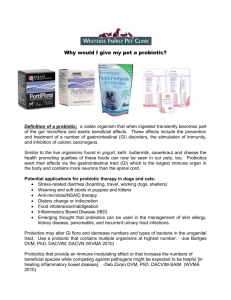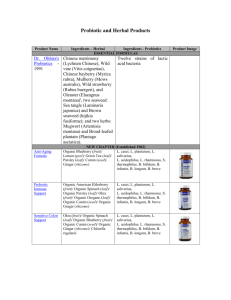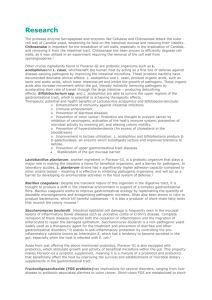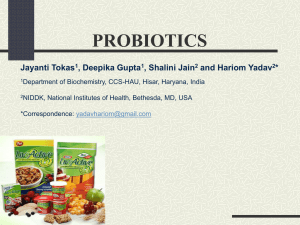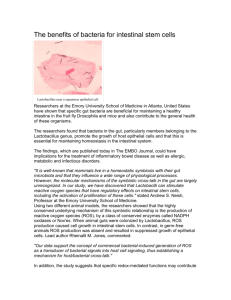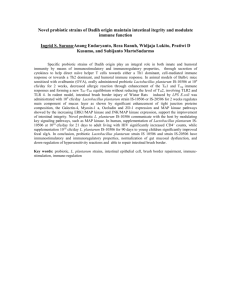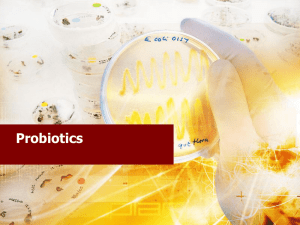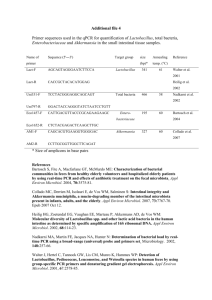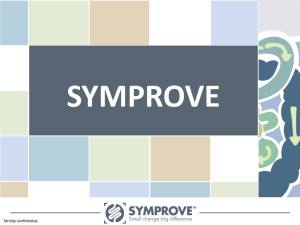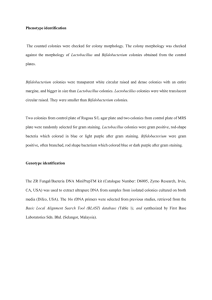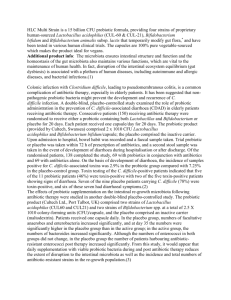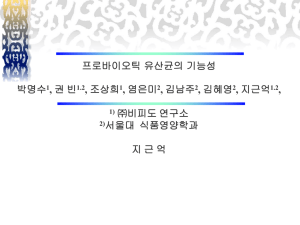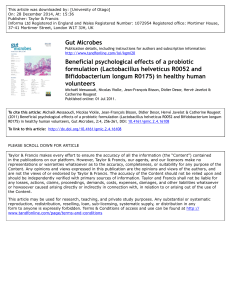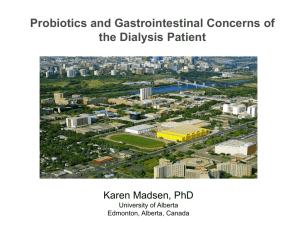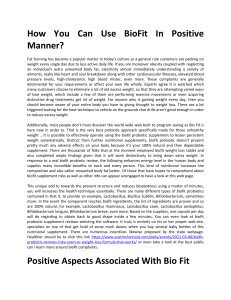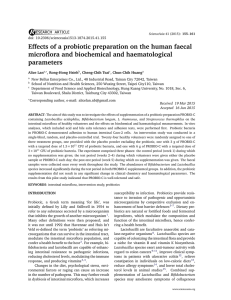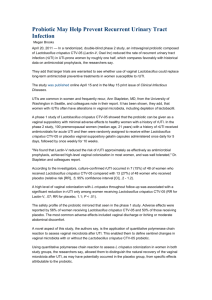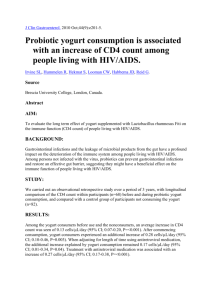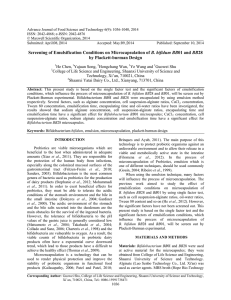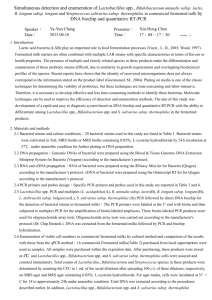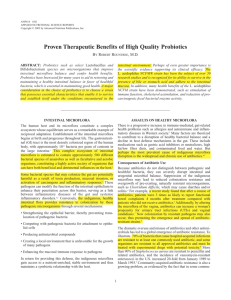Pharmax Human Lactic Commensal
advertisement
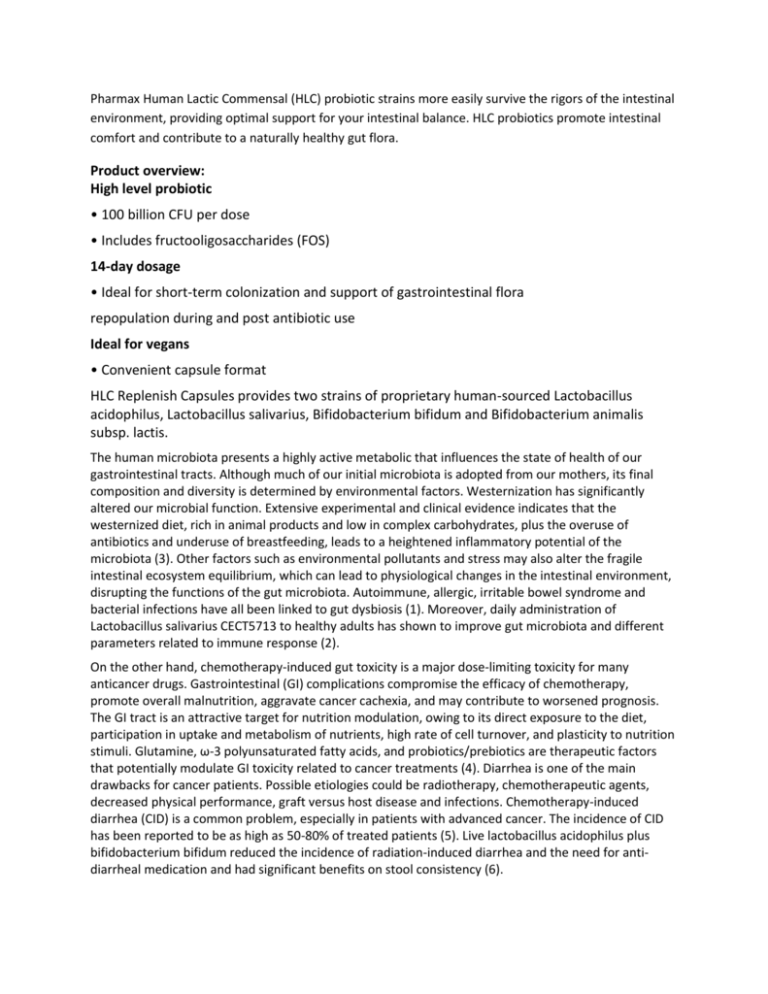
Pharmax Human Lactic Commensal (HLC) probiotic strains more easily survive the rigors of the intestinal environment, providing optimal support for your intestinal balance. HLC probiotics promote intestinal comfort and contribute to a naturally healthy gut flora. Product overview: High level probiotic • 100 billion CFU per dose • Includes fructooligosaccharides (FOS) 14-day dosage • Ideal for short-term colonization and support of gastrointestinal flora repopulation during and post antibiotic use Ideal for vegans • Convenient capsule format HLC Replenish Capsules provides two strains of proprietary human-sourced Lactobacillus acidophilus, Lactobacillus salivarius, Bifidobacterium bifidum and Bifidobacterium animalis subsp. lactis. The human microbiota presents a highly active metabolic that influences the state of health of our gastrointestinal tracts. Although much of our initial microbiota is adopted from our mothers, its final composition and diversity is determined by environmental factors. Westernization has significantly altered our microbial function. Extensive experimental and clinical evidence indicates that the westernized diet, rich in animal products and low in complex carbohydrates, plus the overuse of antibiotics and underuse of breastfeeding, leads to a heightened inflammatory potential of the microbiota (3). Other factors such as environmental pollutants and stress may also alter the fragile intestinal ecosystem equilibrium, which can lead to physiological changes in the intestinal environment, disrupting the functions of the gut microbiota. Autoimmune, allergic, irritable bowel syndrome and bacterial infections have all been linked to gut dysbiosis (1). Moreover, daily administration of Lactobacillus salivarius CECT5713 to healthy adults has shown to improve gut microbiota and different parameters related to immune response (2). On the other hand, chemotherapy-induced gut toxicity is a major dose-limiting toxicity for many anticancer drugs. Gastrointestinal (GI) complications compromise the efficacy of chemotherapy, promote overall malnutrition, aggravate cancer cachexia, and may contribute to worsened prognosis. The GI tract is an attractive target for nutrition modulation, owing to its direct exposure to the diet, participation in uptake and metabolism of nutrients, high rate of cell turnover, and plasticity to nutrition stimuli. Glutamine, ω-3 polyunsaturated fatty acids, and probiotics/prebiotics are therapeutic factors that potentially modulate GI toxicity related to cancer treatments (4). Diarrhea is one of the main drawbacks for cancer patients. Possible etiologies could be radiotherapy, chemotherapeutic agents, decreased physical performance, graft versus host disease and infections. Chemotherapy-induced diarrhea (CID) is a common problem, especially in patients with advanced cancer. The incidence of CID has been reported to be as high as 50-80% of treated patients (5). Live lactobacillus acidophilus plus bifidobacterium bifidum reduced the incidence of radiation-induced diarrhea and the need for antidiarrheal medication and had significant benefits on stool consistency (6). HLC Replenish is a high level probiotic formula. Bifidobacterium bifidum and Lactobacillus lactis is found more commonly in the composition of the intestinal flora of non-allergic children (7),(8). In addition, HLC probiotics has been shown in human double-blind, placebo-controlled clinical studies, at a core consortium of 25 billion CFU to: • Reduce the risk of Clostridium difficile associated diarrhea in hospitalized patients (9) • Significantly improved the Symptom Severity Score of patients suffering from irritable bowel syndrome (IBS) and scores for quality of life, days with pain and satisfaction with bowel habit compared to placebo, when taken for 8 weeks (10). References: 1. Prakash S, Rodes L, Coussa-Charley M, Tomaro-Duchesneau C. Gut microbiota: next frontier in understanding human health and development of biotherapeutics. Biologics. 2011;5:71-86. 2. Sierra S, Lara-Villoslada F, Sempere L, Olivares M, Boza J, Xaus J. Intestinal and immunological effects of daily oral administration of Lactobacillus salivarius CECT5713 to healthy adults. Anaerobe. 2010 Jun;16(3):195-200. 3. Greer JB, O'Keefe SJ. Microbial induction of immunity, inflammation, and cancer. Front Physiol. 2011 Jan 26;1:168. 4. Xue H, Sawyer MB, Wischmeyer PE, Baracos VE. Nutrition modulation of gastrointestinal toxicity related to cancer chemotherapy: from preclinical findings to clinical strategy. JPEN J Parenter Enteral Nutr. 2011 Jan;35(1):74-90. 5. Stein A, Voigt W, Jordan K. Chemotherapy-induced diarrhea: pathophysiology, frequency and guideline-based management. Ther Adv Med Oncol. 2010 Jan;2(1):51-63. 6. Chitapanarux I, Chitapanarux T, Traisathit P, Kudumpee S, Tharavichitkul E, Lorvidhaya V. Randomized controlled trial of live lactobacillus acidophilus plus bifidobacterium bifidum in prophylaxis of diarrhea during radiotherapy in cervical cancer patients. Radiat Oncol. 2010 May 5;5:31. 7. Ozdemir O. Various effects of different probiotic strains in allergic disorders: an update from laboratory and clinical data. Clin Exp Immunol. 2010 Jun;160(3):295-304. 8. Kim JY, Kwon JH, Ahn SH, Lee SI, Han YS, Choi YO, Lee SY, Ahn KM, Ji GE. Effect of probiotic mix (Bifidobacterium bifidum, Bifidobacterium lactis, Lactobacillus acidophilus) in the primary prevention of eczema: a double-blind, randomized, placebo-controlled trial. Pediatr Allergy Immunol. 2010 Mar;21(2 Pt 2):e386-93. 9. Plummer, S., Weaver, M.A., Harris, J.C., Dee, P. and Hunter, J. “ Clostridium difficile pilot study: effects of probiotics supplementation on the incidence of C.difficile diarrhea.” International Microbiology. 2004; 7(1):59-62. 10. Williams EA, Stimpson J, Wang D, Plummer S, Garaiova I, Barker ME, Corfe BM. “Clinical trial: a multistrain probiotic preparation significantly reduces the symptoms of irritable bowel syndrome in a double-blind placebo-controlled trial.” Alimentary Pharmacology & Therapeutics. 2008. 29(1):97-103.
